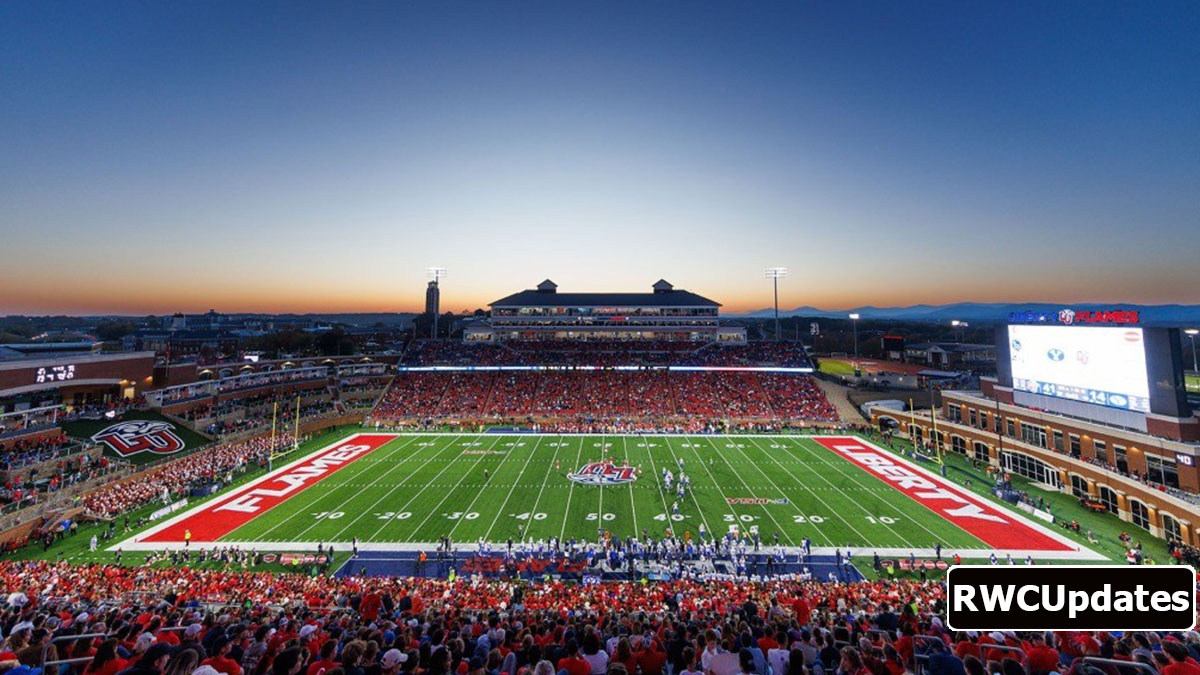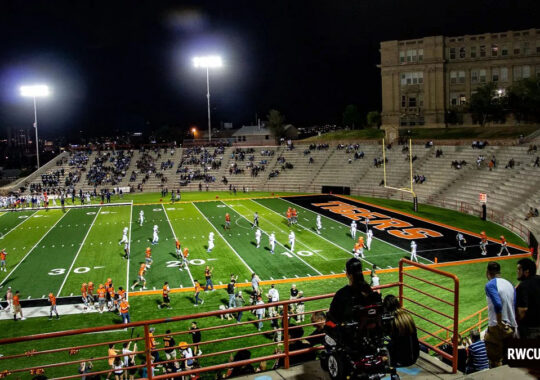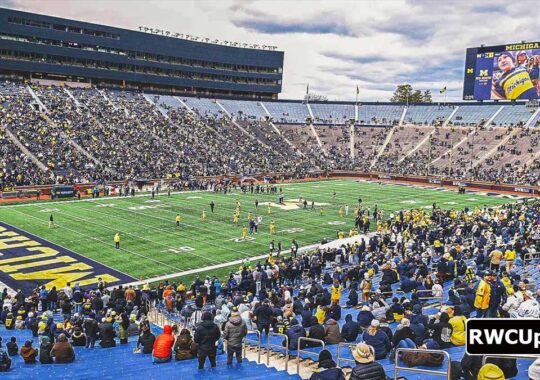In each edition of the Rugby World Cup, the deception is repeated. Since rugby was invented in England, it has been my favorite. Or Ireland, which in this edition started as number one in the ranking. Or France, which is the organizer this year and the eternal candidate. But there is a slight drawback, as in the fallacy of authority: rugby is from the south. Rugby turns the map upside down. The southern hemisphere is above the northern hemisphere.
On Saturday the 28th, the final of the tenth Rugby World Cup will be played at the Stade de France, St. Denis, Paris. It doesn’t matter where it is held (there have been five editions in Europe, one in Japan, and four in the southern hemisphere), when it is played (starting in May or October), how many countries participate (16 teams in the first World Cup or 20 in the latest editions). The result becomes stubbornly in favor of the southern teams.
Rugby World Cup: from the ‘natives’ to the ‘wallabies’
There were several attempts to organize the tournament until finally, in 1987, the fight for the world rugby throne was staged. There were already frequent top-level international tournaments, such as the old 3 Nations (among the best in the south) or the 5 Nations (for the Europeans). The sport that was born in England, at least as we know it now, taught the world on that first occasion a challenging and demanding practice that, on the other hand, was strictly respectful of the rules, the referees, and the rivals. “He taught the world” is an intentional exaggeration because they saw it on television in only 17 countries, compared to the global coverage achieved 20 years later.
And this explosion popularized another wonderful part of the national teams of this sport: each country has a nickname that defines them. New Zealanders were initially known as ‘the natives.’ A Daily Mail reporter described his already exceptional game “as if they were all backs,” which in English is ‘all backs. ‘ But the poor telephone transmission of 1903 turned them into All Blacks. Since then, it has been an appeal to their brilliant style of play along with the color of their shirt, the fern that symbolizes them, and the haka, a traditional Maori warrior dance with which they open the curtain at matches. In 1908, the Australians adopted the nickname wallabies after the marsupial, smaller than a kangaroo, agile, and fast, as marked by the tradition of their game. Their European rivals were Los del Gallo for France and 15 de la Rosa for England.
The exoticism accompanying the All Blacks did not distract from their winning instinct or their ability to reach the first world title in a final against France, heir to a colorful and virtuous game, champagne rugby. And since then, New Zealanders have proven up to three times that they are the best at almost everything. Since their first match in 1884, they have exhibited speed, quickness, colorful play, and precision. They have also been the only ones to be crowned twice in a row, although their charisma was not enough for it to be in the first two editions of the World Cup. Australia took over in 1991 with its ability to compete enough to beat England.
The southern hemisphere shone after 92 with South Africa
Thus, the southern hemisphere had already gone 2-0 ahead of the north. The sample was small, it is true. It’s something that could happen. The hope of the European teams was maintained in the following tournaments.
But the best team had yet to join, the Springboks: South Africa. Since 1977, meetings with the team representing a country noted for its racial discrimination began to be limited. Between 1985 and 1991, he did not play a single test match (test match in Spanish), which refers to international games played between senior teams, as long as the rugby federations recognize them. Although they are not in competition, they influence world rankings.
With the end of apartheid, they were readmitted to international tournaments in 1992. They had already missed two world tournaments, and South Africa hosted the 1995 World Cup. It was the first international sporting competition it hosted after the end of the shameful segregation system. They had competed so tiny that there were no accurate references to how the Boks (as they are also known, the Bokke, or even the AmaBokoBoko) would behave. They were the ninth favorites.
The new government headed by Nelson Mandela thought it would be an excellent way to present the rainbow country. It rallied popular support beyond race under the slogan: “One team, one country.” With a government behind it, the team confirmed in an epic way that they could overcome very adverse situations in sports, reflecting what they could do as a society. In addition to being favorites in the final, the All Blacks had the best player in the world, Jonah Lomu. It was insufficient, and South African captain Francois Pienaar lifted the Webb Ellis Cup.
The 2023 World Cup is not “just rugby.”
In the semi-final against England in this 2023 edition, on Saturday, October 21, it had passed half past ten at night, and they were about to be left out. But we have seen that hundreds of times. South Africa “only” knows rugby and a faith that moves the rival forwards. They trail behind the entire game, sometimes dramatically. Little by little, they harden, come together, push a little more, change nuances, and drag in a scrum. And in that moment, still far away on the scoreboard, they know they will win. This year’s motto is “Stronger Together,” translated as “Together we are stronger.” And they have left no doubt. These days, some chronicles in the southern country talk about how it has become a constant that a group of heroes saves South Africa from disaster.
The description seems to be “just rugby,” but it is not. In Japan’s previous 2019 Rugby World Cup, they had to overcome disagreements that led to the return of racist episodes, even within the team. If in his first World Cup, there was only one black player, Chester Williams, one of the protagonists at that time, the first black captain in Bokke history stood out, Siya Kolisi. Shortly before the competition, Eben Etzeberth, a white man of Afrikaner origin and a national icon, had been accused of assaulting and racially insulting a beggar.
Kolisi refused to take a position in the controversy in a rarefied atmosphere. In South Africa, it was questioned whether there was unity among those called up while a de facto separation was slipping between white and black players. And they won, again, to win the title, this time against England in the most comfortable final they have played to date.
This year, we reached the tenth edition. Except for the fifth match held in Australia in 2003, which England won spectacularly and miraculously against the hosts, nations in the southern hemisphere won the Rugby World Cup. We already know it will be like that this time, too, because the All Blacks and Springboks, New Zealand and South Africa, will decide who becomes the four-time champion first. Both return to their essence, reminding the world that it doesn’t matter how we think they are or their position in the ranking. Each of them dominates all the moments of the game, and before starting October, they knew that they would most likely reach the final. And it is the best possible ending.
PS This is Neutral, and we always look at women’s sports. And yes, in the Women’s Rugby World Cup, the southern hemisphere is also ahead: New Zealand has six out of nine contested titles. In 2025, we will tell the outcome of the tenth edition in England.




